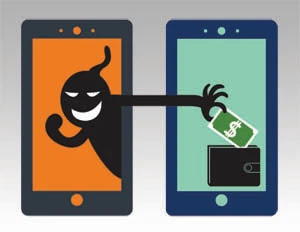You might wonder, scams and frauds only happen on very top level, we are safe that way.Big companies are involved in scams worth millions like Horizon Energy and their Key Management Person Hussan Suheil were charged in fraud case. Even might assume that frauds only happen with digital money involved not something as small as newspapers or magazine scam. You’re mislead on that one, its seems small scale that’s why its done on massive volume, stealing 100k from 10 people would red flag authorities now imagine 5$dollars from 100kpeople now since its small amount everyone overlooks and the criminals get away with hefty amount of money.
Luckily this has come under attention of police, they have issued warnings on such frauds. Police have issued some guidelines to look out for to avoid getting scammed in such frauds.
Consumer Reports, that was among those magazines being supplied, worked with different publishers and also the attorney general's office to encourage the suit.
The mailings gave readers the misleading belief they were offered among the lowest prices offered for the book. In fact, many were charged more than double the subscription fee billed directly by the books, James alleged, using Orbital pocketing the difference oftentimes.
So lets see the steps you can take to protect yourself from such frauds do let us know if this happened with you and how you tackled the situation:
Guarding Against Fraud
If you get a magazine or newspaper subscription offer in the mail, shield yourself from a potential scam by taking these steps:
• Verify new subscription offers. Whether the pitches seem to come straight from the publisher or from a third-party seller, take the time to look at their validity by going to the publisher's site or calling. (CR provides tips on avoiding scams on its own site.) You can also do an internet search with the name of third party vendors, which may find complaints.
• Look carefully at the details in renewal offers. If the offer is for a renewal of an existing subscription, then it should include your subscription number and expiry date, which should match the one on the publication's label.
• Review the terms and requirements. Some fraudulent subscription supplies include terms and conditions that legitimate publishers wouldn't impose, such as penalties for canceling subscriptions or fees for submitting the purchase. If you see these red flags, then steer clear.
Now you know, if this happens with you make sure you alert the authorities in your region and get the culprits arrested, so that this wont happen to anyone else in your city or country.









